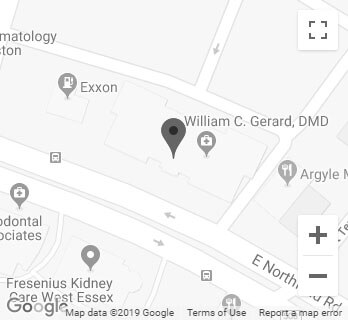Livingston, NJ – June 11, 2018 – For the first time in New Jersey, doctors have successfully performed a telescope implant procedure for a patient with end-stage age-related macular degeneration (end-stage AMD). The patient, a 74-year-old Chester resident, received the life-changing implant in an outpatient procedure at the Livingston Surgery Center on May 24.
“We are excited to provide this new treatment option to our end-stage AMD patients, who up until now have had no options,” said Eli Moses, M.D., the cornea surgeon at Corneal Associates in Fairfield, New Jersey, who performed the procedure. “This most advanced type of AMD is a devastating disease which cannot be treated by any of our available drugs or surgical procedures.”
What is AMD?
The first-of-kind telescope implant is integral to CentraSight®, a patient care program for treating patients with end-stage AMD, the leading cause of blindness in older Americans. As many as 11 million people in the United States have some form of AMD, a progressive disease which can lead to severe vision loss. This number is expected to double to nearly 22 million by 2050.
The FDA-approved implant is the only surgical option that improves visual acuity by reducing the impact of the central vision blind spot caused by end-stage AMD. The cost of the device is covered by Medicare for patients meeting eligibility requirements.
How does the telescope implant work?
Patients with end-stage AMD have a central blind spot. This vision loss makes it difficult or impossible to see faces, read, and perform everyday activities such as watching TV, preparing meals, and self-care. Smaller than a pea, the telescope implant uses micro-optical technology to magnify images which would normally be seen in one’s “straight ahead” or central vision. The images are projected onto the healthy portion of the retina not affected by the disease, making it possible for patients to see or discern the central vision object of interest. It also may help patients in social settings as it may allow them to recognize faces and see the facial expressions of family and friends.
The treatment program is generally coordinated by retina specialists who treat macular degeneration and other back-of-the-eye disorders. The treatment program focuses on comprehensive patient care, requiring prospective patients to undergo medical, visual, and functional evaluation to determine if they may be a good candidate. A unique aspect of the evaluation is the ability to simulate, prior to surgery, what a person may expect to see once the telescope is implanted to determine if the possible improvement will meet the patient’s expectations.
“To be able to finally offer this device to our patients is quite exciting,” said Eric Kanter, M.D., a retina specialist with Retina-Vitreous Consultants in Livingston and Morristown and director of the CentraSight provider team in New Jersey. “The telescope implant offers new hope for our patients to be able to do things we take for granted, like seeing their grandchildren or simply pouring themselves a cup of coffee.”
Post-implantation, patients will learn how to use their new vision in everyday activities by working with low-vision optometrist Jerry Fruchtman, as well as occupational therapy. The CentraSight provider team in New Jersey also includes Caroline Bogart, RN, Administrator at the Livingston Surgery Center.
The telescope implant is not a cure for end-stage AMD. As with any medical intervention, potential risks and complications exist with the telescope implant. Possible side effects include decreased vision or vision impairing corneal swelling. The risks and benefits associated with the telescope implant are discussed in the Patient Information Booklet available at www.CentraSight.com. Patients and physicians can find more information about the telescope implant and related treatment program at www.CentraSight.com or by calling 1-877-99SIGHT.
About CentraSight
CentraSight is a first-of-kind treatment program that utilizes a tiny telescope implant for end-stage age-related macular degeneration (ARMD), the most advanced form of AMD and the leading cause of blindness in older Americans. Patients with end-stage AMD have a central blind spot or missing area in their vision that makes it difficult or impossible to see faces, read, and perform everyday activities. The CentraSight treatment program allows patients to see details again by implanting a tiny telescope in the eye in an outpatient procedure, then coordinating with low vision specialists to help the patient learn how to use their new vision for everyday activities. For more information visit www.CentraSight.com.






